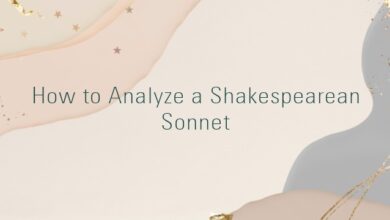
William Shakespeare – Sonnet 120
That you were once unkind befriends me now,
And for that sorrow, which I then did feel,
Needs must I under my transgression bow,
Unless my nerves were brass or hammered steel.
For if you were by my unkindness shaken,
As I by yours, you’ve passed a hell of time;
And I, a tyrant, have no leisure taken
To weigh how once I suffered in your crime.
O! that our night of woe might have remembered
My deepest sense, how hard true sorrow hits,
And soon to you, as you to me, then tendered
The humble salve, which wounded bosoms fits!
But that your trespass now becomes a fee;
Mine ransoms yours, and yours must ransom me.
The poet continues his apologia for his conduct which has soured the relationship. For some unaccountable reason the sophistry of the argument for the defence no longer seems to be of any great importance. Perhaps it is because the remembrance of sorrow endured as a result of the youth’s former misdemeanours awakens our sympathy for the speaker. Not only has he suffered because of his own misguided pursuit of pleasure, as detailed in the previous sonnet, but he remembers also the cutting sorrow which he once lived through which seared his heart. Alas he was not fully alive to this when he went philandering, but now he has the grace to remember it and delicately suggests to the youth that, in the scales of love, they are both now evenly balanced.
The 1609 Quarto Version
THat you were once vnkind be-friends mee now,
And for that ſorrow , which I then didde feele,
Needes muſt I vnder my tranſgreſſion bow,
Vnleſſe my Nerues were braſſe or hammered ſteele.
For if you were by my vnkindneſſe ſhaken
As I by yours , y’haue paſt a hell of Time,
And I a tyrant haue no leaſure taken
To waigh how once I ſuffered in your crime.
O that our night of wo might haue remembred
My deepeſt ſence,how hard true ſorrow hits,
And ſoone to you,as you to me then tendred
The humble ſalue,which wounded boſomes fits!
But that your treſpaſſe now becomes a fee,
Mine ranſoms yours,and yours muſt ranſome mee.
Commentary
1. That you were once unkind befriends me now,The fact of your previous unfaithfulness now counts as an asset to me in my relationship with you.
unkind = cruel, against the principles of natural kindness and kinship.2. And for that sorrow, which I then did feel,for that sorrow = on account of that sorrow which, at the time, you caused me.3. Needs must I under my transgression bow,Needs must I = it is imperative, necessary, inevitable that I etc.
under my transgression = as a result of my sin. OED 1a gives the following for transgression: ‘a violation of law, duty, or command; disobedience, trespass, sin’. The precise nature of the poet’s sin is not known, but since it appears to be related to similar offences by the beloved, such as those dealt with in 33-5, 40-42 and 57-8, it is an act or acts of unfaithfulness, presumably that of taking another lover or lovers. Since the word transgression is singular, one could insist that the poet’s crime is only a single offence, but as he is talking in such generalities, using the words unkindness, trespass, crime, night of woe, to cover a possible multitude of unspecified acts, we need not insist on reading too much biographical information into the admission.
bow = bow my head down as an act of repentance, or under the weight of punishment.4. Unless my nerves were brass or hammered steel.The implication is that ‘I cannot be such a monster, with nerves of brass and steel, that I do not repent and sorrow for my crime’.
hammered is possibly trisyllabic for its onomatopoeic effect. Hammered steel was a particularly hard form of steel, often used for making swords, as in Damascene steel.5. For if you were by my unkindness shaken,my unkindness – links with that you were once unkind of line 1.6. As I by yours, you’ve passed a hell of time;you’ve passed a hell of time = you have experienced agonies like to the torments of hell.7. And I, a tyrant, have no leisure takena tyrant – tyrants were traditionally arbitrary and headstrong in their judgements and relentlessly cruel. The most famous case is that of Phalaris, the tyrant of Agrigentum in Sicily, who had caused to be made a hollow bronze bull, designed by Perillos, in which victims were roasted to death. Perillos himself was immolated inside it by the tyrant, who was curious to test the new machine.
no leisure taken = have not taken the trouble or time.8. To weigh how once I suffered in your crime.to weigh = to take account of, to consider.
once = on a former occasion.
suffered in = suffered as a result of, endured agonies.9. O! that our night of woe might have rememberedour night of woe = the black depression of the sorrow we caused each other. Compare the Christian and mystical concept of ‘the dark night of the soul’ when the soul loses its way in its search for salvation and is deprived of contact with the divine light.
remembered – the verb is transitive and = ‘caused (me, my conscience, my deepest sense) to remember’.10. My deepest sense, how hard true sorrow hits,my deepest sense = my innermost soul, my deepest thoughts and feelings.
hard = cruelly, pitilessly.
hits = strikes, causes pain.11. And soon to you, as you to me, then tenderedsoon = swiftly, without delay.
then tendered = offered, provided, given, at the time when you were suffering. The subject of the verb is technically ‘our night of woe’, but because of the parallelism of this line, indicating that I should offer to you (the salve), as you once offered it to me, it becomes by implication me, the speaker. Q’s punctuation emphasises more the meaning ‘had our night of woe caused me to remember the harshness of sorrow, I would have quickly offered you the healing grace of love, as you once quickly offered it to me’.12. The humble salve, which wounded bosoms fits!the humble salve = the healing ointment of humility and repentance. A salve was an ointment applied to wounds or sores. Figuratively here it refers to the renewed love of the person who has recently fallen off in his affection. humble could imply that the salve is a simple country or folk remedy.
wounded bosoms = hearts which have been injured by a loved one’s betrayal.
fits = makes fit, makes well, heals; befits; is suitable for on this sort of occasion.13. But that your trespass now becomes a fee;But that your trespass = but that offence of yours against me on that former occasion; except that your trespass etc. trespass = sin, as in the Lord’s Prayer: forgive us our trespasses.
a fee = a ransom, a charge debited against you, which may be used to balance my guilt towards you, so that the debts cancel each other out.14. Mine ransoms yours, and yours must ransom me.My trespass, my guilt, my fee, redeems your trespasses of the past, and those trespasses of yours must now redeem my more recent ones.






